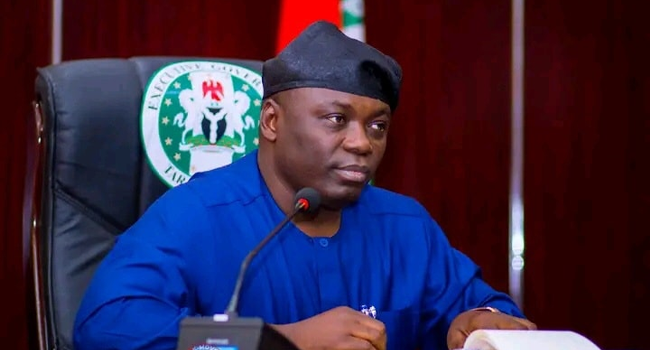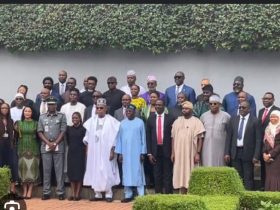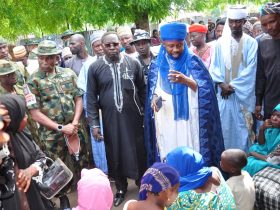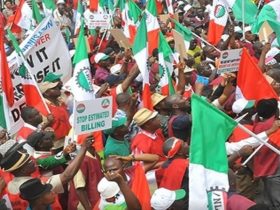Taraba’s Loan Plans Face Scrutiny, Petitioner Raises Alarm
Mr. Abdullahi Usman of Taraba has submitted a formal petition to Mr. Folashodun Shonubi, the Acting Governor of the Central Bank of Nigeria (CBN), expressing grave concerns over alleged plans by Governor Agbu Kefas to secure a staggering N206 billion loan facility.
The petitioner asserts that the loan procurement process is fraught with legal violations and political motives, urging the CBN to intervene promptly to halt the potential adverse consequences for the state.
In his petition, Usman alleges that Governor Kefas is planning to obtain the substantial loan from commercial banks, disregarding the legal guidelines that govern the loan application process for government entities. He appeals to the Acting CBN Governor to immediately instruct the involved commercial banks to halt any deliberation regarding the loan.
Usman states, “If the CBN governor does not urgently wade into this matter, the state will be thrown into a perpetual state of abject poverty.” He adds that the state’s financial obligations would become untenable, resulting in a detrimental impact on its overall viability.
The petitioner’s concerns extend beyond the suspension of the loan request. He calls on the CBN governor to compel the affected banks to provide copies of relevant approvals from all relevant agencies, elucidate the limitations on using commercial bank loans for capital expenditures and state budgets, and place a restriction on all loan facilities to Taraba until after the resolution of the ongoing gubernatorial litigation by the Supreme Court.
In a statement from his counsel, Usman underscores the necessity of the petition to highlight the alleged contravention of the law and urges the CBN to investigate the matter thoroughly to dissuade the banks from participating in the process.
The petition was also copied to key figures, including President Bola Tinubu, the President of the Senate, the Speaker of the House of Representatives, the Ministry of Finance, the Ministry of Justice, Nigeria Financial Intelligence Unit (NFIU), and the Chairman of the Economic and Financial Crimes Commission (EFCC).
Usman argues that the loan sought by the Taraba government is hastily conceived and politically motivated, intended to consolidate the governor’s power and keep the state ensnared in debt. He questions the feasibility of such a loan, particularly considering the state’s current financial predicament.
The petitioner contests the Taraba House of Assembly’s quick approval of the loan, claiming that the process was rushed and lacked proper risk assessment. He argues that the loan’s repayment plan is unsustainable and raises concerns about its potential misuse.
Furthermore, Usman criticizes the commercial banks’ tendency to grant loans to state governments without adhering to proper protocols, implying that such practices benefit the banks at the expense of state governments and their citizens.
The petitioner asserts that he has taken legal measures to halt the loan approval, instructing his counsel to initiate legal action to prevent the involved banks from granting the loan to Taraba.
As the matter unfolds, the spotlight remains on the intricate web of financial transactions and legal considerations, with the hope that a thorough investigation will reveal the true motives and implications of this significant loan facility.









Leave a Reply